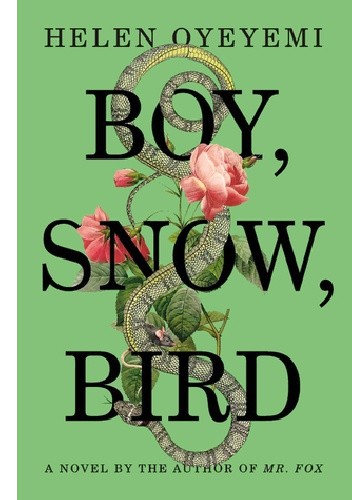

I, a deeply empathetic reader, read this with complete emotional detachment, whereas The Help induced more than one crying spell.Īs for specific plot details, in the interest of brevity, I'll point out only the most egregious. There is simply nothing memorable about this book, and that is in large part because the story can’t be felt somehow, Oyeyemi failed to strike any emotional chords-astonishing, really, given the topic. It tells far more than it shows its dialogue never rings true (it’s unlikely a thirteen-year-old will speak exactly the same as a twenty-something) its many characters aren’t nearly distinctive enough the organization is a bit scattered and confused but most unfortunate of all is that Boy, Snow, Bird lacks emotional depth. The book’s focus on race relations reminded me of The Help, but unlike The Help, this book lacks that punch to the gut that guarantees a story will be unforgettable. What it is instead is a superficial treatment of a psychologically complex topic told from the perspectives of two half-baked characters. It's supposed to be an examination of race relations in 1950s America as they play out in the small town of Flax Hill, Massachusetts.

This isn’t a horrible book, but it is a waste of time.

Readers coming to this book looking for a twist on Snow White will be sorely disappointed. I want to be clear about this upfront: In no way can Boy, Snow, Bird be classified as a fairy tale re-telling (and possibly, Oyeyemi never intended it to be one) it seems clear that in this case, “fairy tale re-telling” is a marketing ploy and nothing more. Getting dubbed a “re-telling of Snow White,” does not help this book. It belongs unequivocally alongside deep disappointments such as The Age of Ice and The Night Circus. Boy, Snow, Bird is part of a growing trend among recently published books: books whose blurbs make them sound much more appealing than they actually are.


 0 kommentar(er)
0 kommentar(er)
